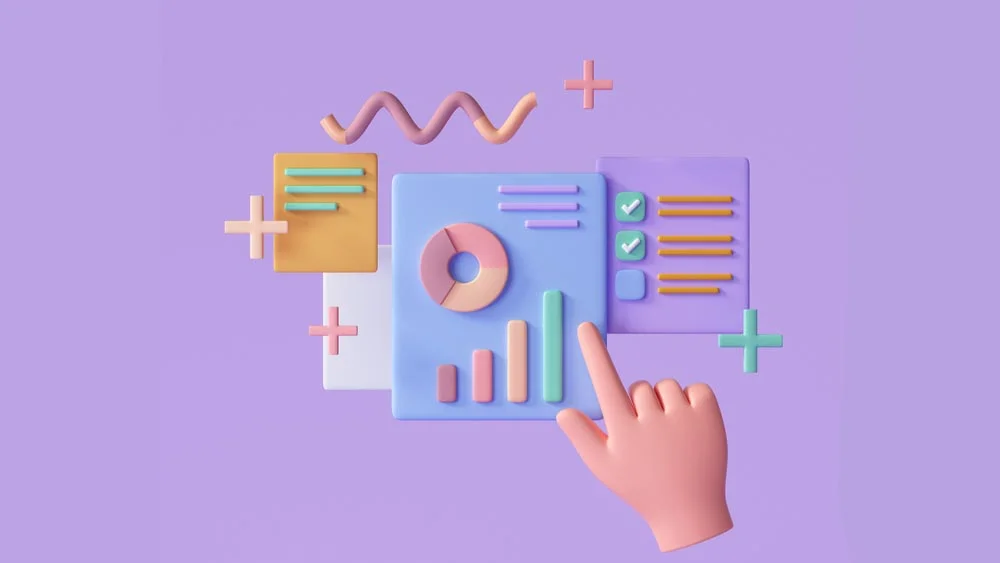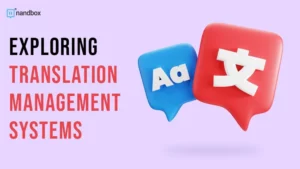There is no denying that small businesses today have to exert extra effort to maintain financial order and efficiency in an ever-globalizing world. At the end of 2024, expense tracking has become one of the most remarkable financial management tools, empowering business owners to gain a deep understanding of their expenditure patterns and make better decisions about their spending. Running an office can be demanding, with time and resources often in short supply. That’s where the best expense tracking app for small business come in. These innovative tools have earned widespread recognition for their ability to sync with your financial flows, offering a real-time view of your expenditure.
In this article, we’ll examine the expense-tracking app market in 2024. With many options available, each offering unique features and capabilities tailored to small businesses’ needs, it can be overwhelming to choose the right one. That’s why we’ve created a roadmap to guide you through the selection process, considering factors such as interface, integration, reporting options, and value provided. Let’s get started!
Why Expense Tracking Is Crucial For Small Businesses?
Running a small business is not a walk in the park, and finance management is very difficult. Although seemingly trivial, monitoring costs can help keep a business afloat or sunken. Here’s why expense tracking is so important:
-
Have a Clarity on your Finances
Expense tracking lets you look at every penny that flows in and out. Without it, costs can easily get out of bounds. Managing pay and salary with the help of an hourly pay calculator contributes significantly to keeping expenses under control. This is crucial for efficient small business expense tracking and financial planning. Once you know how much is exactly this or that, you can understand which expenditures to cut down on and manage your finances wisely.
-
Be on Top of Cash Flow
Cash flow is a lifeline for every small business. It allows you to calculate your cash requirements to meet your future needs and avoid a situation where you don’t have enough. This prevents you from over-purchasing to have enough money to pay the payroll, rent, and supplies.
-
Simplify Tax Preparation
Detailed tracking of expenditures becomes invaluable during tax time, especially when filing tax returns. It is obvious what constitutes business deductible and that you have the required documentation to prove it. This can lead to some big tax savings.
-
Identify Spending Patterns
By keeping track of yearly expense data, you can identify trends in business spending. Perhaps you spend too much money on software licenses or office utilities. These discernments can lead you to eliminate useless expenses.
-
Increase Accountability
Expense tracking makes accountability and transparency in business finances more obvious. It allows employees to credit purchases, which could prevent the misuse of company money.
-
Secure Funding
If at all, good expense tracking will tell the lenders or the investors that you are in control of your finances. Your lenders and investors will only want to see that you manage your enterprise’s money well.
What Is Expense Tracking App?
An expense-tracking app is a handy digital tool for tracking business money. It’s like having a personal financial assistant in your pocket or computer!
At its core, an expense tracker allows you to record every expense your company incurs. Whether it’s for office supplies, transportation, marketing, or client entertainment, you can quickly enter the details of each purchase. Many apps even let you snap a photo of your receipt to go with the expense.
Reliable expense trackers can connect directly to your business bank accounts and credit cards. This way, charges can be imported automatically without any manual entry. You can review and categorize them easily in the app.
Many apps also let you list out all your vendors and service providers. This helps avoid mixing up suppliers when entering expenses. You can simply select the right vendor from the integrated list.
When tax season rolls around, good expense-tracking apps make things much easier. They can generate reports that neatly summarize your spending by category with receipt images attached. This documentation is hugely helpful for claiming legitimate business deductions.
The best expense trackers can share data seamlessly with accounting software to eliminate double data entry across multiple platforms. This connectivity saves you a ton of time.
Overall, an expense-tracking app acts as a digital finance hub where you can monitor and control business spending from a centralized place. It provides clarity into your costs and enables smarter budgeting decisions.
Benefits Of Using An Expense Tracking App
Here are some prominent benefits of using an expense-tracking app:
1. Save Time and Improve Efficiency
The main advantage of using an expense-tracking application is that it saves a lot of time. Instead of rifling through papers, inputting data manually into spreadsheets, and reviewing statements, these apps automate and simplify the entire process.
Receipts can be just as quickly taken and typed in, while bank/credit card expenses are imported and classified with a few clicks. This efficiency saves you time otherwise spent on monotonous expense management and enables you to nurture your business.
- Obtain Immediate Visibility Into Spending Behavior
Manual accounting creates lags while you do not have a complete picture of your spending until invoices or statements arrive. These apps have real-time data, showing how your money is spent on various payment methods and categories. Such awareness makes you spot problems in expenditure areas immediately and thus enables you to act rather than merely react.
- Detailed Reporting and Analytics
Most expense-tracking solutions provide powerful reporting features that allow you to dig deeper into your expenditures. Customized reports analyze expenditures based on categories, vendors, projects, etc. This analytical depth will allow data-driven decision-making, accurate budgeting, and identification of areas for cost optimization. The best apps add this reporting right within their interfaces.
- Enhanced Recordkeeping for Tax Compliance
Looking for a lost checkbook during tax filing time can be a real headache. Tracking apps record all expenses and their attached images/documents. This originality guarantees you will claim all available deductions while being audit-proof with detailed expense reporting for each business expense.
Top Expense Tracking Apps For Small Businesses In 2024
Here are the top 7 expense-tracking apps for small businesses in 2024:
- Invoicera: Invoicera offers robust expense tracking features alongside its invoicing capabilities. Users can easily record expenses, attach receipts, and categorize transactions for accurate financial reporting. With multi-currency support and customizable expense reports, it caters to the needs of small businesses worldwide.
- FreshBooks: FreshBooks is popular for small businesses due to its user-friendly interface and robust expense-tracking features. It lets users easily categorize expenses, capture receipts using mobile devices, and generate detailed expense reports.
- Expensify: Expensify streamlines expense management with features like automatic receipt scanning, expense categorization, and real-time expense tracking. It offers integrations with accounting software and provides detailed insights into spending patterns.
- QuickBooks Online: QuickBooks Online is a comprehensive accounting solution with powerful expense-tracking capabilities. It enables users to track expenses, categorize transactions, and reconcile accounts effortlessly. With mobile access and customizable reports, it’s a valuable tool for small business owners.
- Zoho Expense: Zoho Expense simplifies expense management with receipt scanning, expense categorization, and policy enforcement features. It integrates seamlessly with other Zoho applications and offers advanced features like mileage tracking and per diem allowances for comprehensive expense tracking.
- Wave: Wave offers free accounting and invoicing software for small businesses, including robust expense-tracking features. Users can easily capture receipts, categorize expenses, and reconcile accounts in real time. With its intuitive interface and powerful reporting tools, Wave is a popular choice among freelancers and small business owners.
- Xero: Xero is a cloud-based accounting software known for its comprehensive expense-tracking capabilities. It allows users to automatically capture receipts, categorize expenses, and reconcile transactions with bank feeds. With multi-currency support and mobile accessibility, Xero is suitable for small businesses operating globally.
Factors To Consider When Choosing The Expense Tracking App
Here are some factors to consider when choosing the expense tracking app:
- User-Friendliness and Ease of Use
The app should have an intuitive and user-friendly interface that requires minimal training for employees to navigate. Look for apps with a clean design, straightforward expense entry processes, and mobile apps for on-the-go tracking.
- Receipt Management and Data Capture
Evaluate how the app handles receipt management, such as capturing receipts by snapping photos, automatically extracting data like merchant names and amounts, and securely storing receipt images for record-keeping.
- Expense Categories and Customization
Consider whether the app offers customizable expense categories that align with your business operations, projects, departments, or client billing needs. Flexibility in creating and modifying categories can provide better visibility into spending areas.
- Approval Workflows and Access Controls
If your business requires expense approval processes, look for apps that support configurable workflows, including multi-level approvals, delegated authorities, and access controls based on roles or departments.
- Reporting and Analytics
Evaluate the app’s reporting features, such as generating detailed expense reports, analyzing spending trends, and exporting data in various formats (e.g., Excel, PDF) for further analysis or sharing with stakeholders.
- Mobile Accessibility and Offline Mode
Businesses with employees who travel or work remotely should consider robust mobile apps that allow expense tracking on the go and offer offline capabilities for capturing expenses in areas with limited connectivity.
- Pricing and Scalability
Compare the pricing plans of different apps, considering the number of users, features required, and any potential future growth needs. Look for apps that offer scalable pricing options to accommodate your business’s evolving needs.
Closing Thoughts
Overall, selecting the right expense-tracking app will be a significant upgrade for small businesses, as it will help them consolidate financial management and improve business performance. Facts like features, user interface, cost, compatibility, and security help take calculated measures to benefit business finances.
With the help of these top-rated apps, businesses can track their expenses more carefully, gain useful information about their expenditure habits, and finally make better financial decisions that contribute to their long-term success.







